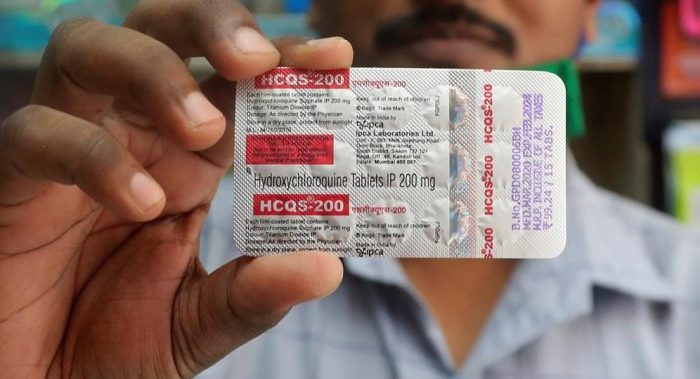One of the world’s most prestigious medical journals, The Lancet, has retracted an influential COVID-19 research paper after three of the paper’s authors said the patient data used for the study could not be independently verified.
The paper, published on May 22, sparked worldwide concern that using the anti-malarial drug hydroxychloroquine on COVID-19 patients may not be safe.
READ MORE:
Hydroxychloroquine doesnt prevent COVID-19 in people exposed to the virus, study finds
“After publication of our Lancet article, several concerns were raised with respect to the veracity of the data and analysis conducted by Surgisphere Corporation and its founder and our co-author, Sapan Desai, in our publication,” authors Mandeep Mehra, Frank Ruschitzka and Amit Patel said in a statement published by The Lancet, Thursday.
“Our independent peer reviewers informed us that Surgisphere would not transfer the full dataset, client contracts, and the full ISO audit report to their servers for analysis as such transfer would violate client agreements and confidentiality requirements.
Story continues below advertisement
“As such, our reviewers were not able to conduct an independent and private peer review and therefore notified us of their withdrawal from the peer-review process.
“We deeply apologise to you, the editors, and the journal readership for any embarrassment or inconvenience that this may have caused.”
The observational study had found that after reviewing 96,000 COVID-19 patients across six continents, those treated with hydroxychloroquine had a higher risk of heart arrhythmia and death.
[read more]
“It caused people to stop what theyre doing (and) delay the high quality science in order to sort out whether this initial paper was accurate or inaccurate” said Derek Exner, Associate Dean of Clinical Trials at the University of Calgary Cummings School of Medicine.
READ MORE:
Medical journal questioning findings of hydroxychloroquine coronavirus study
The World Health Organization immediately suspended the hydroxycholoroquine arm of its international Solidarity trial pending a safety review.
On Wednesday, WHO Director-General Dr. Tedros Adhanom Ghebreyesus announced that review was complete and that trial would be able to resume.
“The Data Safety and Monitoring Committee of the solidarity trial has been reviewing the data. On the basis of the available mortality data, the members of the committee recommended that there are no reasons to modify the trial protocol,” he said.
Story continues below advertisement
“The executive group received this recommendation and endorsed the continuation of all arms of solidarity trial, including hydroxychloroquine.”
Enrollment for The Alberta HOPE COVID-19 trial at the University of Calgary was suspended following The Lancet study publication as well.
READ MORE:
Albertas hydroxychloroquine study cleared to resume, but remains on pause
“Our safety committee has reviewed everything and said that look, the trial looks totally safe and theres no major adverse affects with hydroxychloroquine,” said Dr. Michael Hill, the trial’s co-lead.
Still, the delay has been costly for the project.
In the nearly two weeks since the Alberta research was suspended, COVID-19 cases in that province have dropped. A spokesperson for Alberta Health says the trial might not resume at all.
Story continues below advertisement
“We understand the trial will remain on hold for the next 10 days while the researchers determine whether to suspend for the summer pending (a) fall recurrence of cases or close the trial formally with a plan for data pooling with international collaborators,” said Tom McMillan in an email to Global News.
The coronavirus pandemic has put pressure on scientists to work faster than ever before, but some researchers worry if the cost of speedy science may be too high.
“Of course this pandemic is unfolding at a very rapid pace and the rate of new knowledge is unprecedented and the rate of data sharing is also unprecedented,” said Dr. Isaac Bogoch, an infectious diseases physician at the University of Toronto.
“But it’s also important that you get it right and theres clearly got to be a balance of speed with accuracy. You cant compromise accuracy.
“(That would) erode public trust in science, in medicine and in public health and this is time more than ever before where we need public trust in science, medicine and in public health.”
View link »
© 2020 Global News, a division of Corus Entertainment Inc.
The Lancet retracts hydroxychloroquine study following data concerns – Global News


